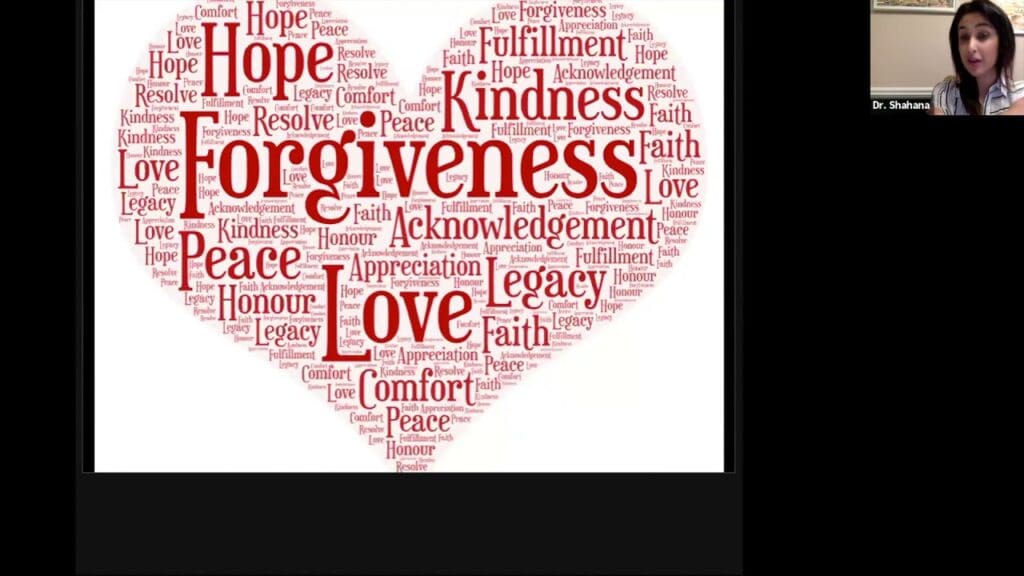Understanding your Emotions Webinar with Dr. Shahana

Video Transcript
Dr. Alibhai
Good evening, everyone. I hope you can hear and see us. Welcome to our webinar, “Understanding Your Emotions,” presented by Dr. Shahana, my lovely wife, as many of you know. I’m Dr. Alibhai from Stuart Chiropractic in Surrey, British Columbia.
We’re here because we want to deepen our understanding of our minds—why we feel and react in certain ways. We often know where to turn for physical issues like neck or back pain, and even heart problems, but when it comes to our mental health, there’s more uncertainty. Dr. Shahana will help clarify and provide answers on how to handle everyday emotions.
Dr. Shahana has been a voice in mental health, having given a TED Talk over a year ago and spoken internationally, including at the International Women’s Day show at the University of Fraser Valley. She also serves as an advisor on mental health in our practice, greatly influencing our approach to holistic health.
This session will last about 30 minutes as we value your time and aim to deliver great value. Feel free to leave any questions in the chat; we’ll try to address them at the end. Now, let’s welcome Dr. Shahana.
Dr. Shahana
Thank you, Khalid, for that introduction. I’m thrilled to be here and have been looking forward to this. Tonight is about you learning something more about yourself. It’s a success if you leave this evening reflecting on what we discuss, carrying those thoughts into your daily life.
Let’s start with an exercise. Imagine it’s January 15th, 2009, the day Captain Sully Sullenberger landed a plane on the Hudson River. Imagine you were on that routine flight from LaGuardia to Charlotte. Suddenly, you hear, “Brace for impact.” In just 90 seconds, passengers contemplated their lives as they faced almost certain death.
I’m not giving you 90 seconds, but 15. Think about what would go through your mind. Images, thoughts, emotions? Start now.
From my experience presenting this scenario, people recall faces of loved ones and unfinished life dreams. Interestingly, many think of others rather than themselves. Now, think solely about yourself for a moment. In those final seconds, what one word encapsulates what you’d seek? Hope? Forgiveness? Peace? Your 15 seconds starts now.
People often express a desire for forgiveness, love, and a legacy. Imagine someone like Rick Elias, a CEO on that flight, who in those final moments, chose to affirm love to himself, a profound act of self-acknowledgment often neglected until life’s extremities due to societal views on self-love.
Discussing mental health starts with recognizing the importance of self-love. How can we aim to improve our mental well-being if we don’t first acknowledge our own worth? Tonight, I see many of you, from various backgrounds, perhaps struggling with life’s demands—juggling family, work, and personal health. Recognizing and appreciating your efforts is the first step toward self-appreciation.
Let’s not wait until our final moments to value ourselves. While one in five may face a mental health condition, everyone navigates emotional challenges. Our emotional spectrum is vast, yet societal pressures often skew our self-perception and emotional health towards negativity.
Emotions are transitory; they are not your identity. They start, peak, and fade. Acknowledging this can transform our approach to handling feelings. Instead of suppression or blame, recognizing the transient nature of emotions can lead to healthier coping strategies.
We are influenced by our life experiences, which shape our emotional responses. Understanding this can help us reframe our perspectives and learn healthier emotional responses.
As we close, reflect on how you feel now. Have these insights sparked a curiosity about your emotional state? I hope this session has been helpful, and I look forward to any feedback. Please feel free to reach out through my website or LinkedIn.
Thank you for joining us this evening. Remember, at Stuart Chiropractic, we’re here to support you. Have a great night. Goodbye.


